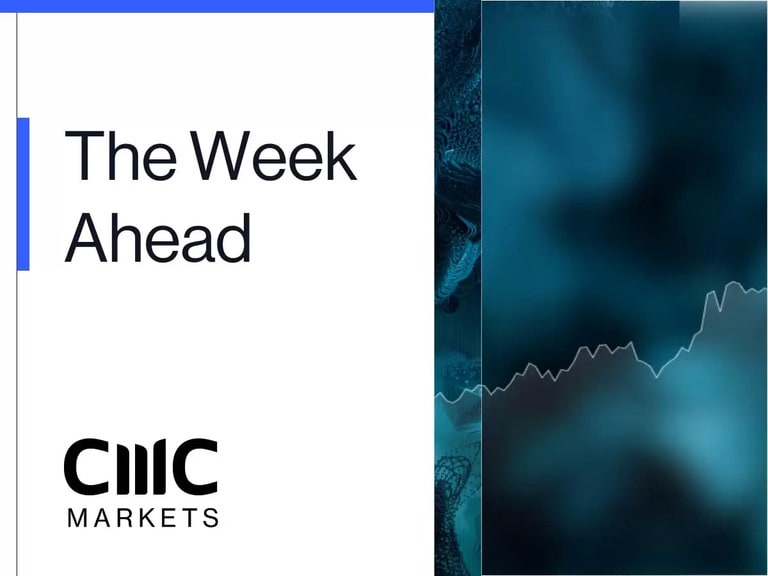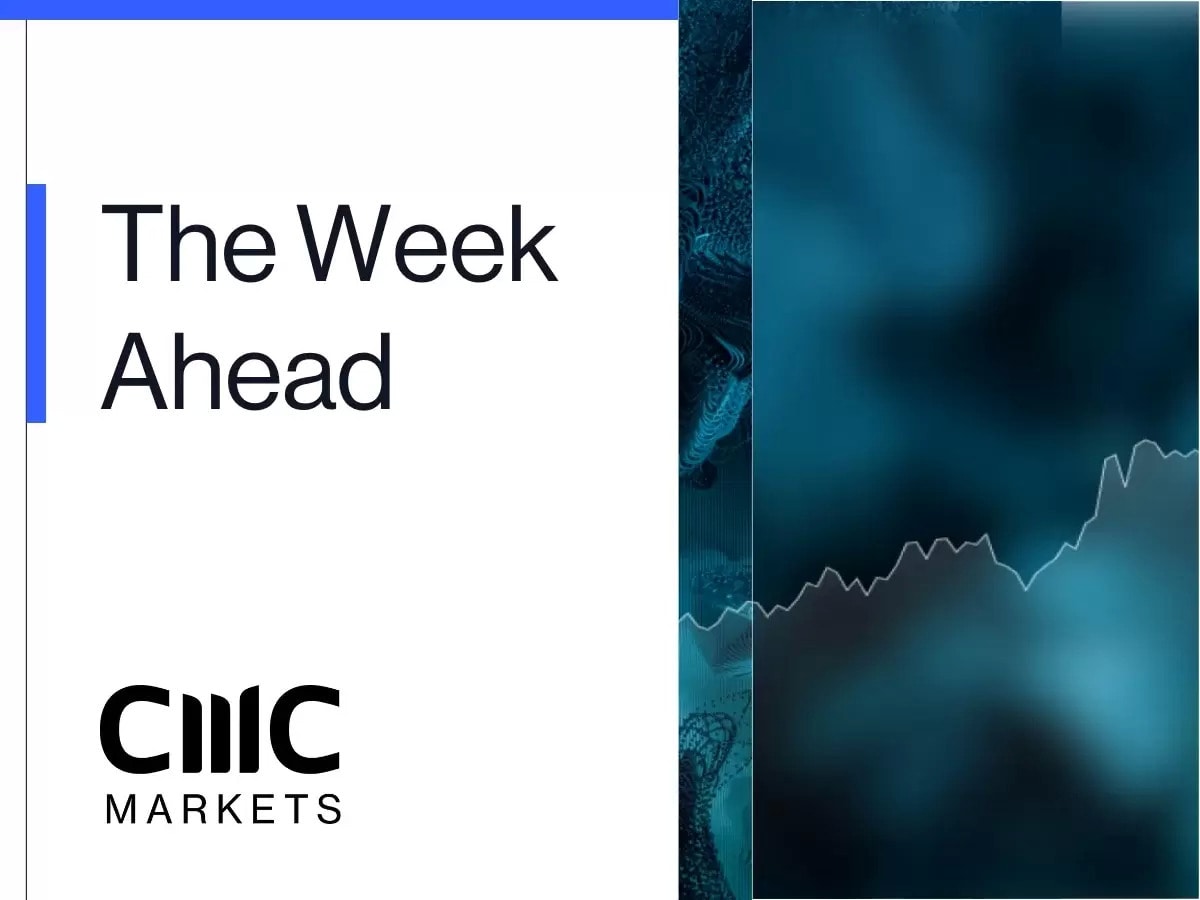
Welcome to Michael Kramer’s pick of the top three market events to look out for in the week beginning Monday 27 January.
Get ready for an action-packed week, featuring quarterly earnings reports from four members of the ‘magnificent seven’: Tesla, Microsoft, Meta and Apple (the rest of the group of US tech giants – Alphabet, Amazon and Nvidia – will report in February). Also on our radar in the week ahead are interest rate decisions from the US Federal Reserve and European Central Bank, plus updates on US economic growth and the Fed’s preferred measure of inflation, the PCE price index.
Central bank interest rate decisions
- Wednesday 29 January (US Federal Reserve)
- Thursday 30 January (European Central Bank)
The Fed’s rate-setting meeting is expected to deliver a rate hold on Wednesday. Current swap market pricing suggests the next rate cut may not occur until July. On the other side of the Atlantic, the swap market is assigning a 97% probability to the ECB lowering its benchmark interest rate by a quarter of a percentage point on Thursday.
In both cases, traders and investors will listen carefully to the press conferences that follow the announcements for clues on future moves. The market currently expects another rate cut from the ECB in March. Any commentary from the ECB that challenges this expectation could lead to the euro strengthening against the dollar.
There is certainly potential for the euro to rally. The EUR/USD pair rose towards $1.05 on Friday, rebounding after it found support at the 61.8% retracement level near $1.02 earlier in January. The gains are reflected in the relative strength index (RSI), which has broken above a downward trend, signalling a shift in momentum.
However, for the euro to make further gains against the dollar, the market would need a dovish Fed (in favour of lowering interest rates to stimulate growth) and a hawkish ECB (in favour of raising rates to control inflation), but the latest economic data from the US and Europe do not support such a stance from either central bank. If EUR/USD slides after the upcoming rate announcements, a break of support at $1.02 could result in a decline back to euro-dollar parity.
EUR/USD, January 2022 - present
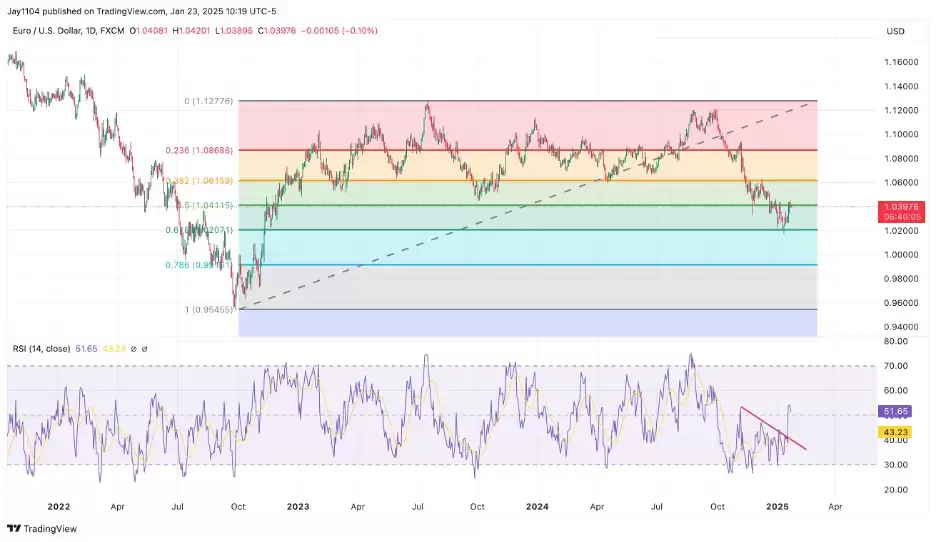
Tesla Q4 results
Wednesday 29 January
Tesla is expected to report fourth-quarter earnings of $0.75 a share on revenue of $27.5bn, based on analysts’ estimates. The electric vehicle maker’s gross margin is forecast to have dropped to 18.8%, down from 19.8% in Q3. The company typically does not provide guidance, instead offering its outlook on volumes, which can be vague. Currently, analysts expect total vehicle sales to increase by 15.9% in 2025 to 2.07 million units. If the results statement supports that level of growth, the stock’s post-earnings move could be significant, with the options market currently pricing in a swing of 9%.
The options market appears bullish on Tesla, whose Nasdaq-listed shares are down roughly 14% since mid-December at about $412, as of Friday morning in the UK. However, the stock may fall if the company fails to deliver an upside surprise. The key level of support to watch, from both an options and technical analysis perspective, is $400. If the stock drops below $400, it could decline to the next areas of support at around $375 or $345.
Tesla share price, October 2024 - present
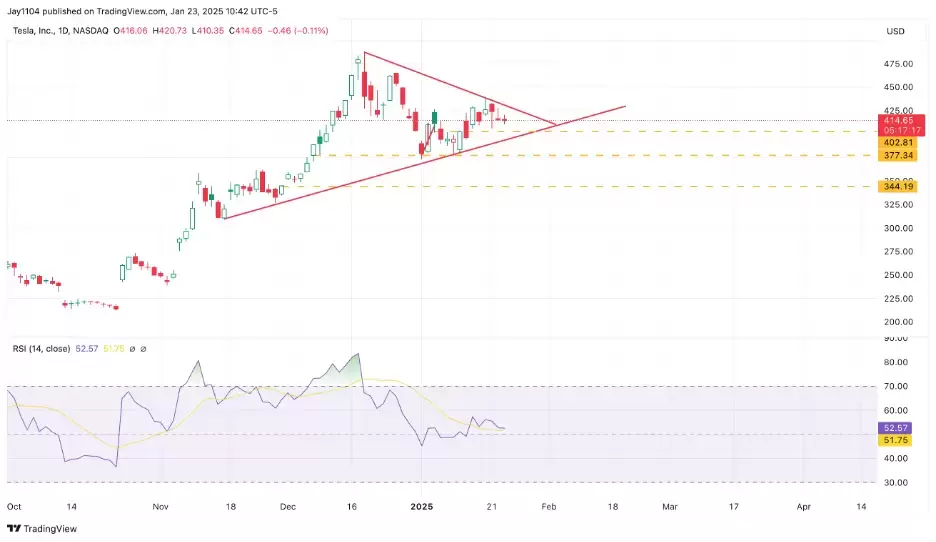
US economic data
- Thursday 30 January (Q4 GDP)
- Friday 31 January (December PCE price index)
Analysts estimate that US gross domestic product grew 2.6% in Q4, while the closely watched personal consumption expenditures (PCE) price index is projected to have increased 2.5% in the year to December, up from 2.4% in November.
On a monthly basis, the PCE price index is expected to have climbed 0.3% in December, accelerating from November’s 0.1% month-on-month uptick. Core PCE, which strips out volatile food and energy prices, is estimated to have increased 0.2% month-on-month in December, up from 0.1% a month earlier, with the annual measure of inflation remaining unchanged at 2.8%.
These updates on US economic growth and inflation could affect gold prices, especially if the numbers come in higher than expected. In particular, a hotter-than-expected PCE report could lead to higher interest rates and a stronger dollar, potentially driving gold prices lower. A decline could see gold slump towards the recent support level at $2,600.
On the other hand, gold – trading at just over $2,770 an ounce on Friday – could break higher if the PCE report shows inflation to be in line with or weaker than analysts’ estimates. In that scenario, gold could climb above the recent highs of $2,780 and potentially approach its record high of $2,790.
Gold CFDs, May 2024 - present
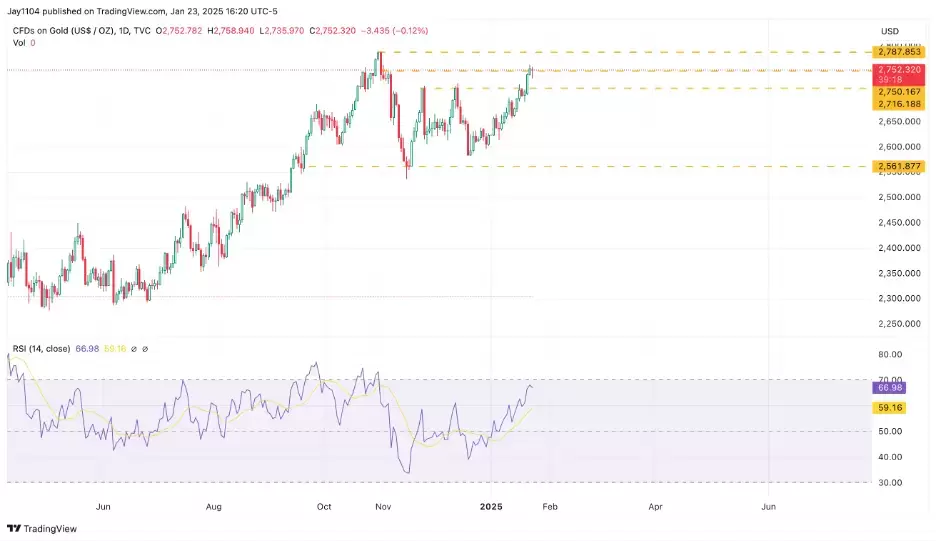
Key economic and company events
The coming week’s major economic announcements and scheduled US and UK company reports include:
Monday 27 January
• China: January purchasing managers’ index (PMI) data
• Germany: January IFO business climate index
• Results: AT&T (Q4)
Tuesday 28 January
• Eurozone: ECB bank lending survey
• Japan: Bank of Japan monetary policy meeting minutes
• US: January consumer confidence index
• Results: Boeing (Q4), Lockheed Martin (Q4), RTX (Q4), Starbucks (Q1), Stryker (Q4)
Wednesday 29 January
• Australia: Q4 consumer price index (CPI)
• Canada: Bank of Canada interest rate decision
• US: Federal Reserve interest rate decision
• Results: Alibaba (Q4), Automatic Data Processing (Q2), Chubb (Q4), Danaher (Q4), IBM (Q4), Meta Platforms (Q4), Microsoft (Q2), ServiceNow (Q4), T-Mobile US (Q4), Tesla (Q4)
Thursday 30 January
• Eurozone: ECB interest rate decision, Q4 flash gross domestic product (GDP)
• Germany: Q4 flash GDP
• Japan: January Tokyo CPI
• US: Q4 flash GDP, weekly initial jobless claims to 24 January
• Results: Airtel Africa (Q3), Apple (Q1), Blackstone (Q4), Caterpillar (Q4), Comcast (Q4), Intel (Q4), Marsh McLennan (Q4), MasterCard (Q4), Shell (Q4), Thermo Fisher Scientific (Q4), United Parcel Service (Q4), Visa (Q1), Wizz Air (Q3)
Friday 31 January
• Australia: Q4 producer price index (PPI)
• Germany: January flash CPI, January unemployment rate, December retail sales
• US: December personal consumption expenditures (PCE) price index
• Results: AbbVie (Q4), Chevron (Q4), Exxon Mobil (Q4)
Note: While we check all dates carefully to ensure that they are correct at the time of writing, the above announcements are subject to change.
Disclaimer: CMC Markets is an execution-only service provider. The material (whether or not it states any opinions) is for general information purposes only, and does not take into account your personal circumstances or objectives. Nothing in this material is (or should be considered to be) financial, investment or other advice on which reliance should be placed. No opinion given in the material constitutes a recommendation by CMC Markets or the author that any particular investment, security, transaction or investment strategy is suitable for any specific person. The material has not been prepared in accordance with legal requirements designed to promote the independence of investment research. Although we are not specifically prevented from dealing before providing this material, we do not seek to take advantage of the material prior to its dissemination.



















